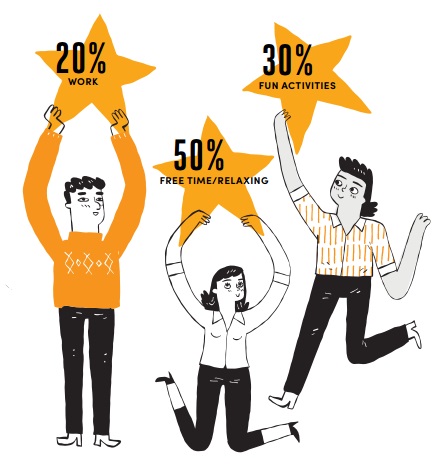On average, many companies are redirecting money once used for office space expenses for more employee events and trips.
INCENTIVE TRIPS have long been a core element of the direct selling industry, but what about the corporate employees? Corporate retreats are undergoing a facelift with the changing work environment.
According to Zippia, an estimated 36.2 million American employees will work remotely by 2025, with 26 percent of U.S. employees already fully remote as of 2022. Retreats are now being used to bring together in-office and remote staff. Many companies are redirecting money once used for office space expenses for more employee events and trips.

“With remote work the new standard and employees less than enthusiastic to get back into the office, the need to reconnect via offsites and retreats has become even more important, with concentrated interaction being just as effective as spending days together in an office,” according to a BizBash article.
Mental and physical well-being moved to the forefront of employee priorities over the past few years, so action-based retreats focusing on mindfulness and physical activities are trending. They’re also getting longer. The average for most retreats is two to three days, but many are extending up to four days, including some hybrid working activities.
In a Skift.com article, Chase Warrington, an executive at Doist, detailed a “50/30/20” formula for his company’s retreats. “Fifty percent is free time and relaxing; 30 percent coordinated fun activities; and 20 percent work,” he said. “You get that professional aspect, but it’s not the other way round. It’s a nice balance, and it works well for me.”
“It is such an important part of every company culture in this hybrid world, as organizations focus on taking care of their employees,” shared Katharine Sharpstone, managing director of Trip Tribe Wellness in a Hubspot article. “Both employees and clients are demanding wellness to be a major part of the agenda as it makes their employees more productive, and it helps to build deep meaningful relationships with their clients.”
There is a negative side to corporate retreats. Some employees can see it as a forced vacation away from family. Whatever your stance on the length and balance of your corporate retreats, remember that fun, relaxing and rewarding experiences aren’t just for field. No matter how you plan your team-building activities or retreats, don’t forget your home office employees.
From the May 2023 issue of Direct Selling News magazine.


